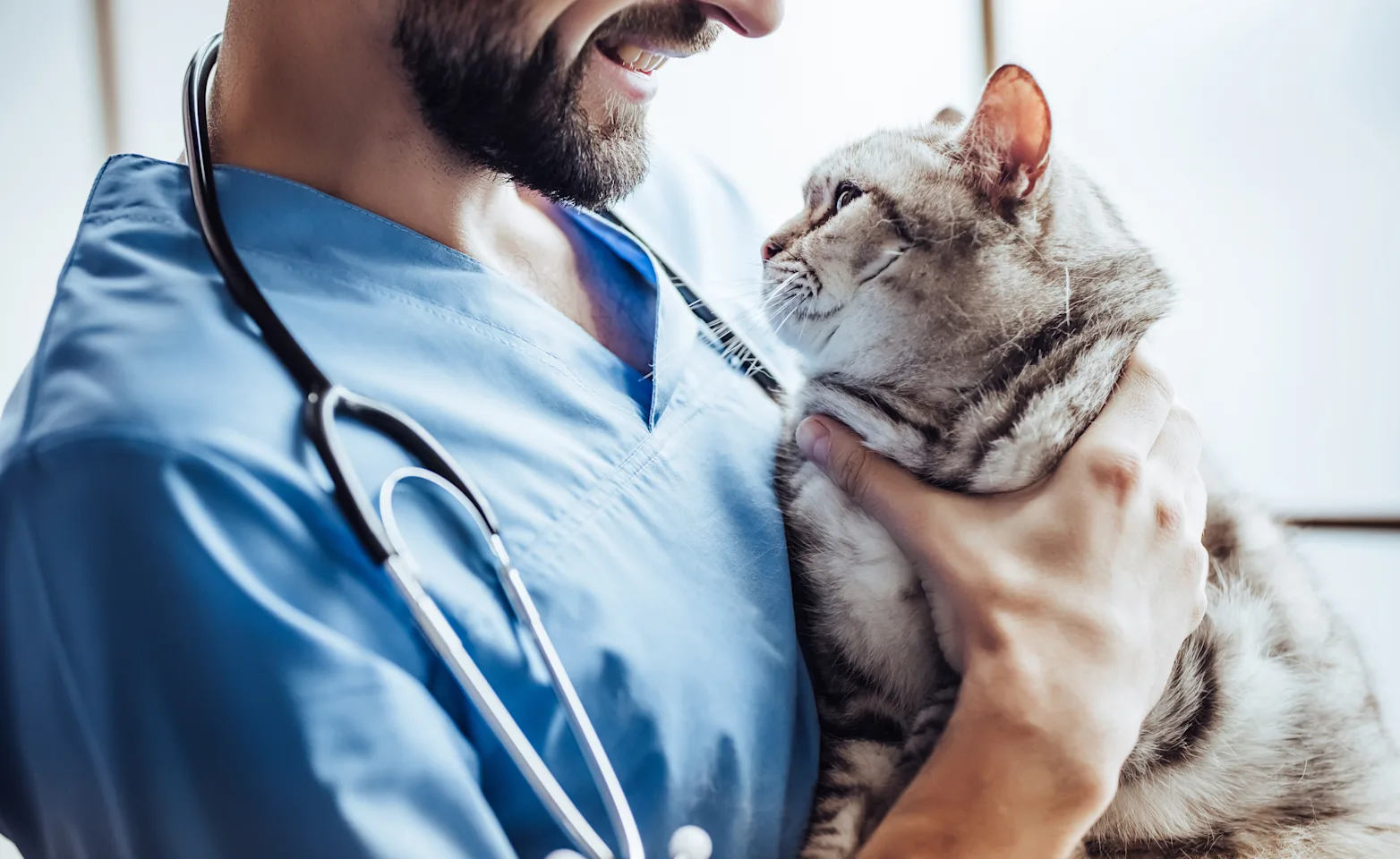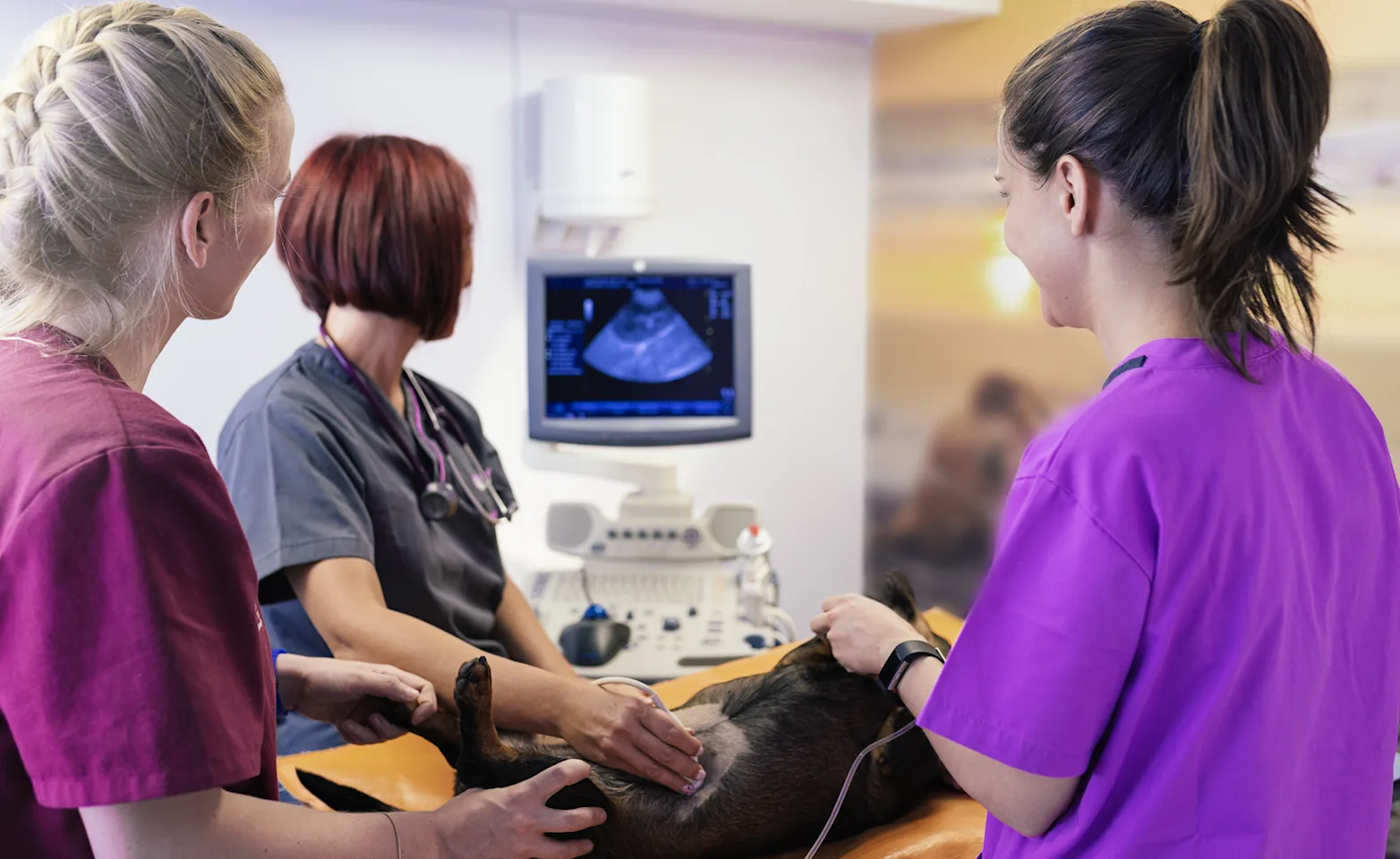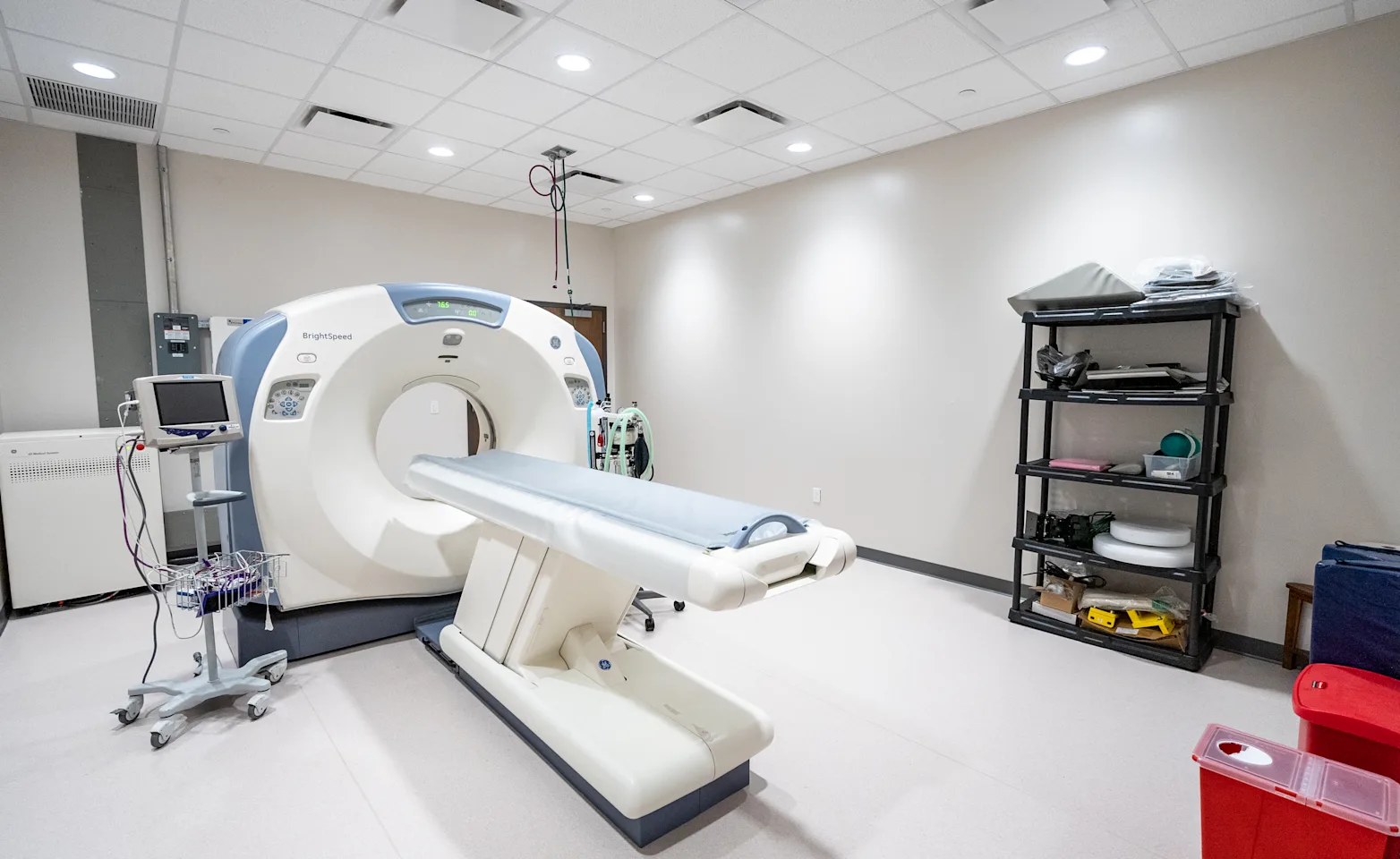Red Bank Veterinary Hospital - Hillsborough

Red Bank Veterinary Hospital Hillsborough offers advanced diagnostic imaging to enhance our patient care.
Our imaging offerings include digital radiography (x-rays), ultrasonography, and computed tomography (CT). These modalities complement each other and are considered non-invasive diagnostic techniques that provide information which cannot be obtained on physical examination or bloodwork.
In addition, further information identified through imaging can be used to guide sampling procedures such as fine needle aspirates and/or biopsies. All of the information obtained can help the clinician reach a diagnosis and aids in determining the next step required to manage a patient’s illness.

Ultrasound
Ultrasound machines emit a special type of sound waves and, in return, generate an anatomic picture of your pet’s internal organs. By carefully evaluating these images, we can help diagnose many diseases. A short-acting sedation may be given to calm pets who are nervous, anxious, or painful.
Ultrasound can be used to identify problems involving many different body parts:
Abdomen – Intestinal foreign bodies, masses, portosystemic shunts, pancreatitis, bladder stones.
Chest – Mediastinal masses, pulmonary masses, pleural effusion.
Musculoskeletal – Joint/bone tumors, soft tissue/tendon injury.
Neck – Thyroid and salivary gland masses, abscesses.
Outpatient Ultrasound
Outpatient ultrasounds provide a convenient option for our clients and their pets without an appointment with our specialists. Your General Practice Veterinarian who referred you for the ultrasound will review the findings with you once the scans are complete and interpreted.
If you are a General Practice client at Red Bank Veterinary Hospital Hillsborough, please note that your doctor may not get back to you with results until their next business day.
If a patient visiting us for outpatient ultrasound is deemed unstable, an Emergency Doctor would take over the case and your visit would include an emergency exam fee. The doctor would discuss any other costs associated with the visit and treatments if necessary.

Computed Tomography (CT)
Computed Tomography, also known as CT scan or CAT scan, is a versatile imaging procedure used to evaluate nearly every part of your pet’s body. CT scans are typically performed under heavy sedation or anesthesia and are reserved for cases that require a more sensitive diagnostic technique.
They are useful for identifying conditions in the bones, chest, spine, nasal cavity, and stomach. CT scans are interpreted by a board-certified veterinary radiologist and can be ordered by your primary care veterinarian or used one of our veterinary specialists.
